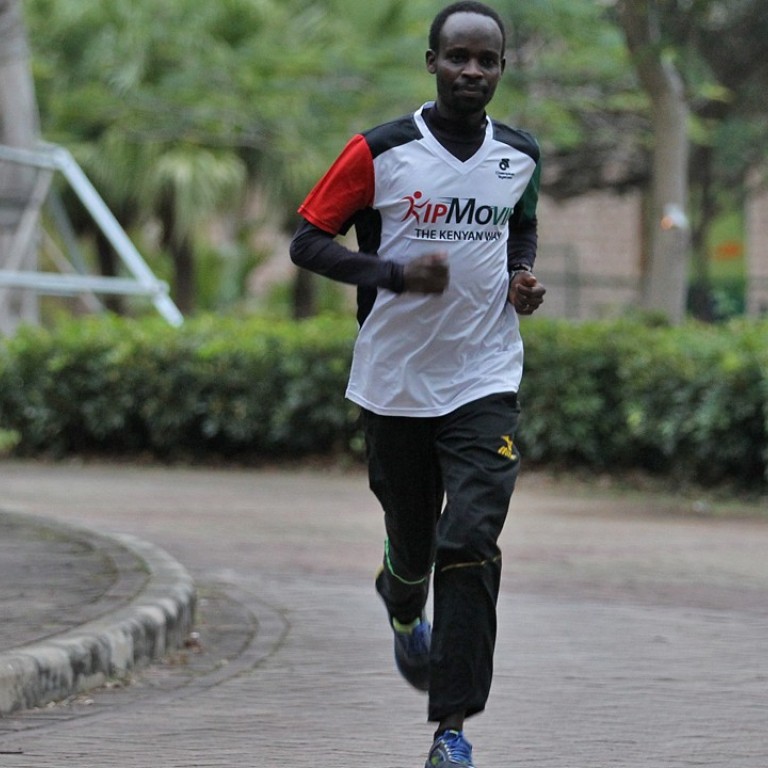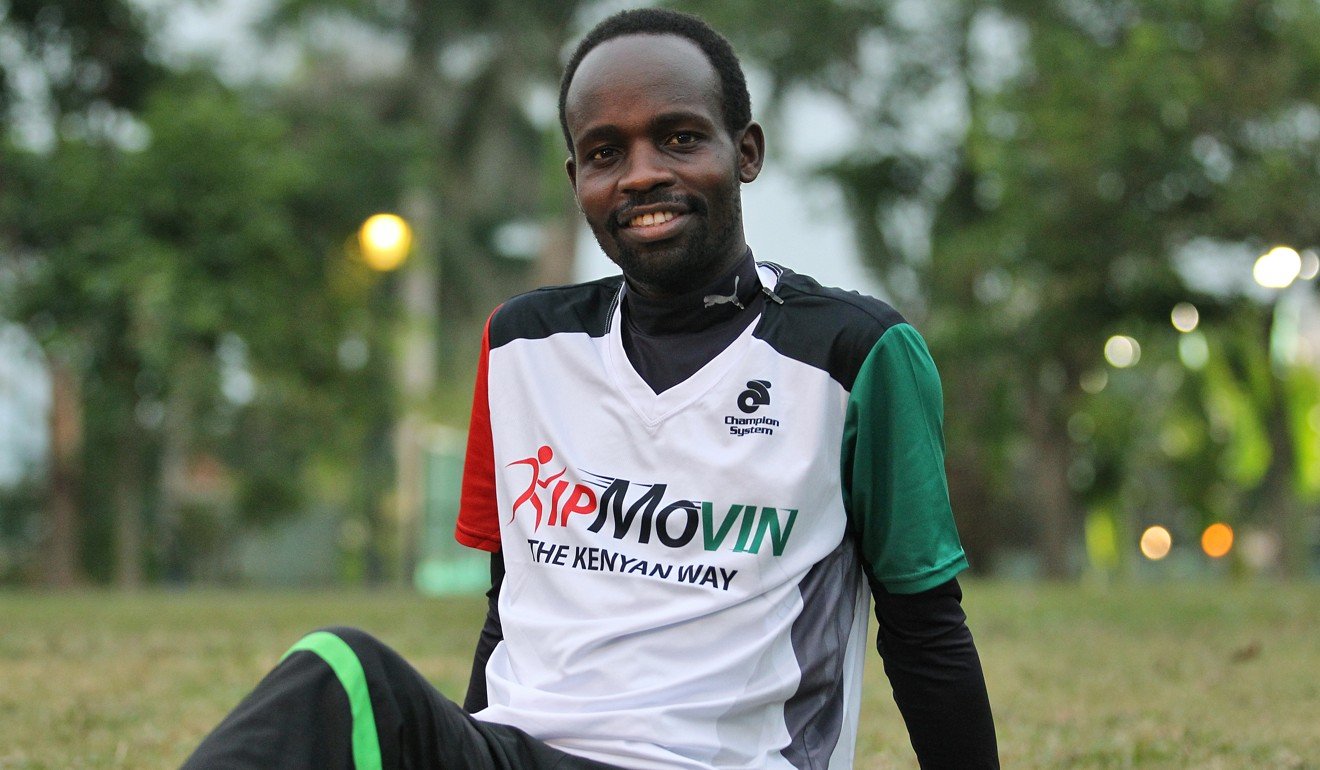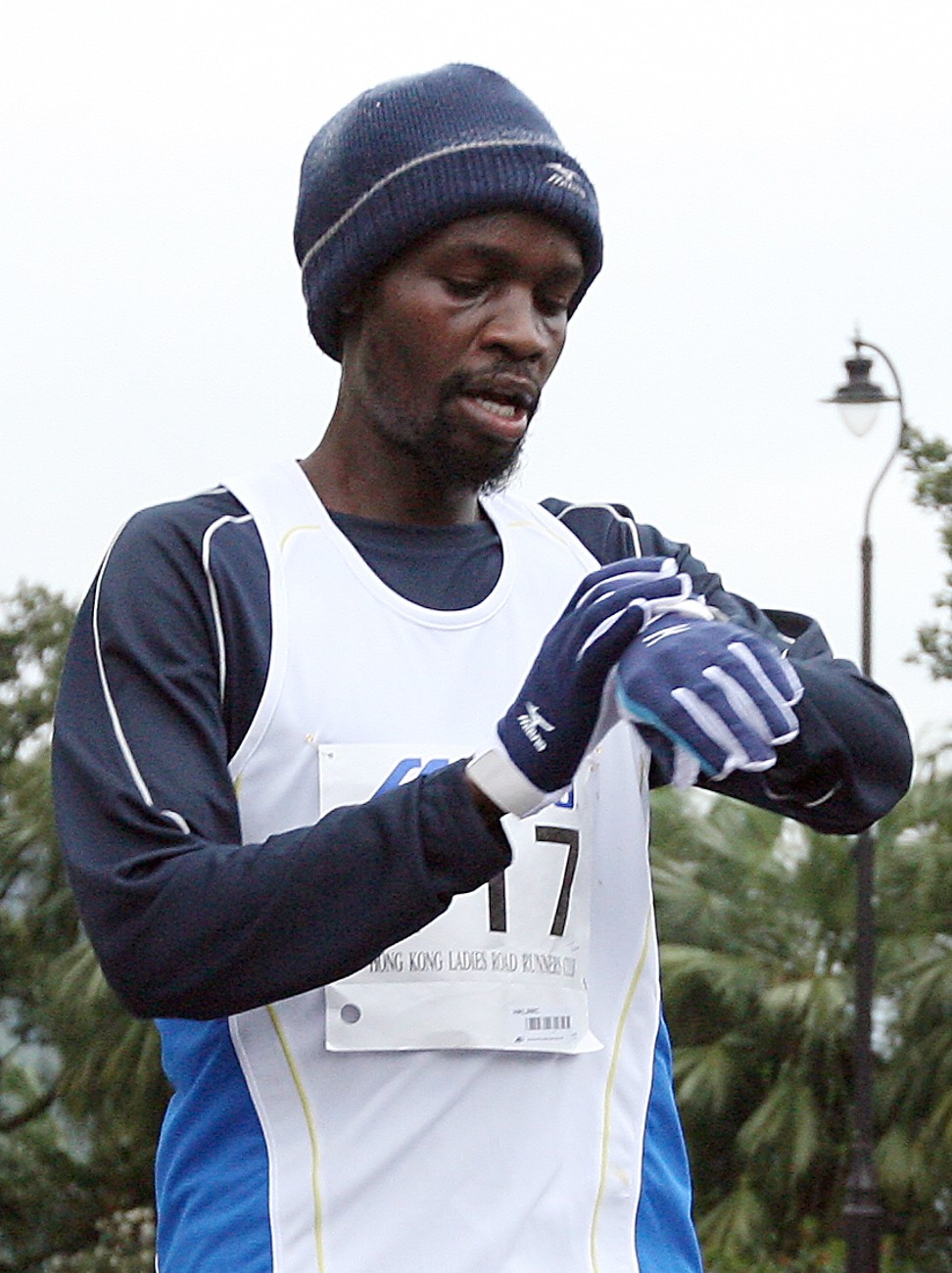
Running is a way of life for Kenyan athlete Thomas Kiprotich who trains children in Hong Kong
The Kenyan runner started training in pair of flip-flops – a stark contrast to the aspirational, social media-obsessed culture that surrounds running in Hong Kong
For most Hongkongers, it might be a morning jog before work or a session spent sweating on a treadmill.
But for Thomas Kiprotich, running is a lifestyle and philosophy for good living – one that has brought the 30-year-old from an impoverished Kenyan village to competing in international races, and finally to Discovery Bay – where he has set up his own school for runners of all ages and abilities.
Kiprotich is clearly passionate about running and educating others about its benefits, but is also humble about his numerous achievements.
Five tips for how to keep running past 40 in Hong Kong, from athletes who are doing just that
He first got interested in competitive running after seeing his uncle travel abroad and represent Kenya in races, but running was an essential part of his daily life while growing up.
“Running is something we’ve always had – it’s a lifestyle in Kenya,” he says. “You run to school, you run to the market when your parents send you – and that’s how most of us become runners.”
Because of this, Kiprotich maintains Kenya has a fundamentally different running culture from Hong Kong, where running is confined to a hobby kept separate from people’s working lives.
“In Kenya, running is a career – people run for a living. There, if you’re a full-time athlete or runner, you have no other career,” he adds.

The aspirational, social media-obsessed culture that surrounds running in Hong Kong – where the brand and style of your running gear is often valued above your sporting achievements – is also very different to what Kiprotich grew up with.
Sportswear stores specialising in high-end running equipment are flourishing in Hong Kong, where global brands such as Nike and Adidas are targeting the market and hoovering up prime retail space in the most exclusive shopping districts.
You run to school, you run to the market when your parents send you – and that’s how most of us become runners
In contrast, Kiprotich started training in a pair of flip-flops before finally being given a pair of oversized second-hand running shoes from a friend, months later.
Since settling down in Hong Kong a decade ago, Kiprotich has made a name for himself in the city’s growing running community by winning races such as the HKMP Half Marathon and the UNICEF Charity Run Half Marathon.
“My favourite part of competing is when I find people to run with me, [finding] good competition,” Kiprotich says. “In some of the races it’s just me running by myself, but when I have some people running really quick with me, it’s really fun.”
The cultural importance placed on running has enabled people like Kiprotich to transcend their upbringings and access opportunities of a lifetime that would have been previously unavailable to them.
After completing his physical training alongside military officers at the Ngong Academy in Kenya, Kiprotich soon began competing in Southeast Asia, often travelling to Malaysia for races.
Competitive running was the way Kiprotich met his Australian wife, Nerida, who is also a running coach. The couple met while Kiprotich was competing in Malaysia and later made a home for themselves and their three sons in Discovery Bay.
Although Kiprotich occasionally still competes in local half marathons, he dedicates most of his time and energy into training children and adults through his running school, Kipmovin.
“When I see kids improving and running fast, I really feel like I’m doing something for the community,” he says. “Especially when you see a kid running from zero to a 5km race, [when] before they couldn’t even do 1km.”
Kiprotich uses a variety of inventive techniques to keep children engaged during training, such as encouraging them to pick up cones and ping-pong balls from the ground as a way of deepening their warm-up stretches.
“They will be stretching but they don’t know they are stretching,” he says. “So they don’t know that they are doing an exercise – they just think they are playing.”
This combination of serious training disguised as play allows the kids to access the physical and emotional benefits of running, which Kiprotich is keen to promote.
“You don’t get sick as often, since your immune system gets strong very quickly,” he says. “[And] after school, when most of my classes happen, it’s [a good way] for the kids to relieve stress.”
Kiprotich even believes running is the secret to his youthful appearance and is keen to emphasise the benefits of frequent exercise for adults too.
You don’t get sick as often [when you run regularly], since your immune system gets strong very quickly
Throughout his running career in Hong Kong, Kiprotich frequently took part in charity races, such as the Discovery Bay 10k to raise money for worthy causes, and give something back to the local community.
He has been running in the annual Unicef charity run since 2008, when he came first.
“I think it’s very important for people to support Unicef because it does a lot of charity work all over the world,” he says.
Running has also allowed him to send financial support to his relatives in Kenya each month, which has improved their living conditions no end.
He has five brothers – four of them working and the other still in school – and his money helps pay for tuition fees, as well as supporting his parents.
Besides giving back to his extended family, Kiprotich has also set up a charity with his wife named Kipgiving, which aims to collect used running shoes and shirts that are sent to runners in Kenya who cannot afford them.
But for now, Kiprotich plans to continue balancing his educational and charity work with looking after his family, so he can spread the gospel of running far and wide in the local community.
“I’m focusing a lot on kids, so at the moment I just want to keep it the way it is,” he says. “Who knows what will come in the future?”


